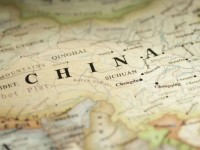Vasilis Trigkas, Visiting Assistant Professor, Schwarzman College, Tsinghua University
Jul 16, 2015
The Lincoln Memorial in Washington D.C. carries deep symbolism, both in the U.S. political heritage, and classical Greek aesthetics. Vasilis Trigkas proposes that this monument be a site for President Xi and Obama to deliver an alternative narrative for China-U.S. relations.

Jeffrey A. Bader, John C. Whitehead Senior Fellow, Brookings Institution
Jul 10, 2015
East Asia has avoided major military conflicts since the 1970’s. It is owing to the maturity and good sense of most of the states of the region, their emphasis on economic growth over settling scores, and the American alliances and security presence that have deterred military action and provided comfort to most peoples and states. But above all else, it is due to the reconciliation of the Asia-Pacific’s major powers, the United States and China.
Yu Sui, Professor, China Center for Contemporary World Studies
Jul 08, 2015
Events commemorating the 70th anniversary of victory will be opportunities for China to demonstrate its determination to safeguard peace and promote development in the world, unswervingly pursue peaceful development and strengthen mutual trust with wartime allies, including the US.
Wang Yusheng, Executive Director, China Foundation for Int'l Studies
Jul 06, 2015
China hopes to build a new model of big power relations with the US featuring non-conflict, non-confrontation, mutually beneficial cooperation, and mutual accommodation of each other's core interests. The aim is to gradually make the uncomfortable interdependent relations more comfortable.
Chen Jimin, Guest Researcher, Center for Peace and Development Studies, China Association for International Friendly Contact
Jun 30, 2015
After heated discussions, even confronting debates, the 7th S&ED has still achieved more than 190 results, which clearly illustrates the solid base for bilateral relations.
Yin Chengde, Research Fellow, China Foundation for International Studies
Jun 04, 2015
Mutual trust is essential for candid exchanges and sincere collaboration. This is an indispensable precondition for China and the U.S. to formulate a new-type major-country relationship and take advantage of historical opportunities such as President Xi’s upcoming U.S. visit.
Chen Jimin, Guest Researcher, Center for Peace and Development Studies, China Association for International Friendly Contact
Jun 02, 2015
The ongoing series of high-level meetings show that, despite pressures from third-party players, Beijing and Washington value a cooperative relationship and mutual understanding that should continue to strengthen.
Zhou Wenzhong, Secretary-General of Boao Forum for Asia
Jun 01, 2015
As China’s economy and interests continue to grow, Beijing will uphold its sovereignty, security and development interests and will assume a bigger role in regional and global affairs. President Xi’s upcoming visit is another opportunity for Americans to appreciate that China’s actions are targeted at the US and its allies.
Michael Swaine, Senior Associate,Carnegie Endowment for Int'l Peace
May 22, 2015
Policymakers in the United States, China, and other Asian powers must choose whether to deal forthrightly and sensibly with the changing regional power distribution or avoid the hard decisions that China’s rise poses until the situation grows ever more polarized and dangerous.
Wu Zhenglong, Senior Research Fellow, China Foundation for International Studies
May 21, 2015
The 70th anniversary of WWII is a good time to reflect on global governance and progress in ending colonialism, while promoting peace. More nations need to observe the basic norms of the World Charter, the institutional structures must be adapted to new threats, and representation by smaller nations must be more equal.
Back to Top

- China-US Focus builds trust and understanding between the U.S. and China through open dialogue among thought leaders.
- Our Offerings
- Topics
- Videos
- Podcasts
- Columnists
- Research Reports
- Focus Digest
- Stay Connected
-
Thanks for signing up!
- Get the latest stories from China-US Focus weekly.